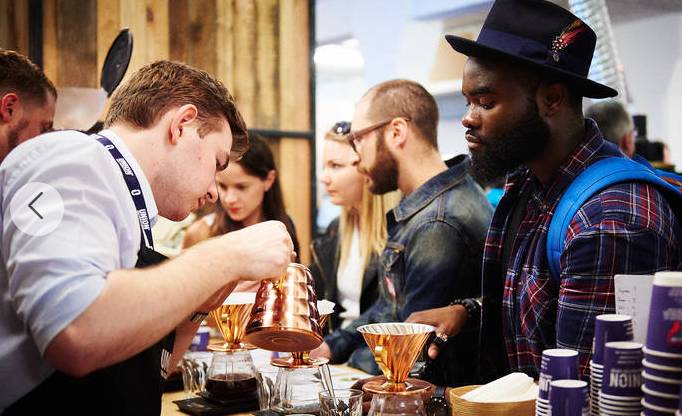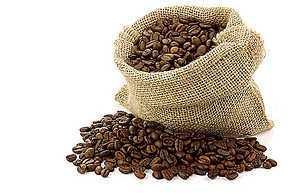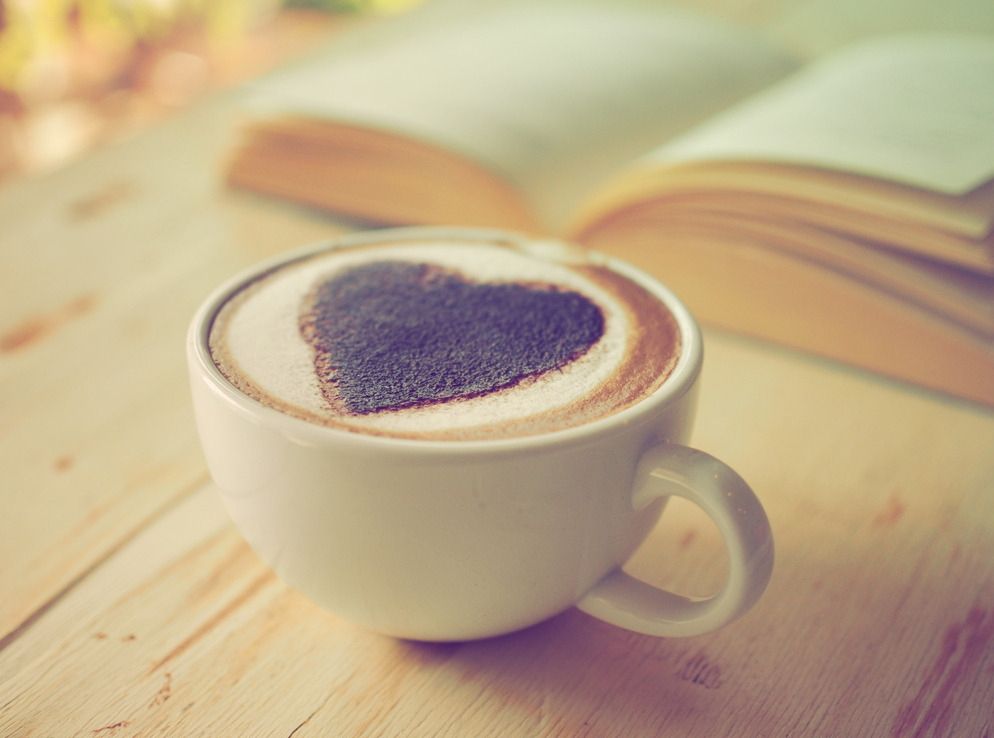More and more Britons choose to spend their afternoon tea in cafes.
Follow the caf é (Wechat official account vdailycom) and found that Beautiful Cafe opened a small shop of its own.
Afternoon tea is a symbol of English elegant life.
On a drizzling afternoon, sipping a cup of mellow English black tea by the fireplace and sipping muffins from time to time, it is leisurely and cozy.
The British love affair with afternoon tea can be traced back to the mid-19th century.
According to legend, the afternoon tea tradition was "invented" by Anna Maria, Duchess of Bedford VII.
During the six-hour lunch-dinner interval from 13:00 to 19:00, the Duchess often felt bored, so she asked the maid to prepare tea and snacks and invited the guests to join her. Afternoon tea comes from here.
After that, afternoon tea became popular in Britain for centuries.
Afternoon tea, which has been handed down since the Victorian era, is undoubtedly the best embodiment of the British tradition.
Drinking tea has naturally become an important part of British social and cultural life.

However, the survey shows that tea sales in the UK have continued to decline in recent years.
The British media have also paid close attention to this phenomenon.
Today's British love tea is not as good as it used to be. More and more British people choose to spend their afternoon tea in cafes.
According to a recent online survey of 1036 respondents by Research without Borders (Research Without Borders), the average Briton spends about 2110 pounds (about 19000 yuan) a year in a cafe, equivalent to one pound of the average wage. The average Briton goes to cafes 152 times a year, about three times a week, for an average of 93 minutes each time, and many people ask for a second cup of coffee.
Do the British prefer coffee or tea? The reporter interviewed several passers-by at random on the streets of London. Listen to what they say.
Passerby 1: Neil Fisher, Journalist Neil Fisher, journalist
"drink more coffee, because I like the taste, coffee can give me the motivation to start a new day. But if it is in the afternoon, you would like to have tea with cakes, cookies and other snacks. "
On the fact that Britons are increasingly fond of coffee, Neil Fisher believes:
Part of the reason may be that London is becoming more and more international, coupled with the good craftsmanship of handmade coffee, people will prefer the roasted and mixed flavor.
And now people have access to a variety of different types and flavors of coffee, so coffee is naturally more popular.
However, in Fisher's view, there are still many Britons who attach great importance to afternoon tea. "they may not have that much time to drink it often, but they will use it as a small reward for coming once or twice a month."
Passerby 2: Eileen Smiths,Artist Elaine Smith, artist
"I used to drink coffee when I was young, but now I drink some low-calorie tea occasionally, because coffee keeps people awake and can't sleep at night."
"when I was young, I was an artist and always worked until four o'clock in the morning, so [drinking coffee] became a habit."
"I really don't know that young people are drinking coffee these days, probably because they all drink with friends, and it may take a long time. They still drink that kind of stuffy stuff, and I've never tried it before. I'm the older generation. "
Passerby 3: Dominic B.B.Sacter, Writer Dominic Sackett, writer
"I've always preferred coffee. Because of the bitter taste of coffee, the taste is stronger and stronger. "
Sackett told reporters that in his family, his parents and siblings drink tea, but he prefers coffee.
"I am an outlier in our family."
His girlfriend is from Glasgow and also likes coffee. He believes that his girlfriend has been in the United States for many years, and his preference for coffee may have something to do with it.
"it used to be tea-based in the West, but now it seems to be gradually influenced by the United States, and everyone is drinking coffee. Look at any high street, there are so many coffee shops. "
In Sackett's view, a preference for coffee or tea is purely a matter of taste.
Personally, tea is not to his taste, but he also appreciates people who love tea.
Nowadays young people in Britain prefer coffee to tea.
Britons between the ages of 50 and 64 spend £31.20 a year on tea, according to Tilney, a financial planning firm. For British millennials, it costs only 10.4 pounds (91 yuan) a year for tea and 31.2 pounds (274 yuan) for coffee.
In terms of household expenses, the traditional British tea has lagged far behind coffee. At present, the average British family spends 1475 pounds (13000 yuan) on tea and 2585 pounds (23000 yuan) on coffee.
The surge in British coffee spending is mainly due to the fact that local brand Costa Coffee has always focused on cultivating local consumption habits and opening stores all over the four British Isles. In addition, it is also due to the expansion of international chain stores such as Starbucks. The surge in the number of bars and fast-food chains has also boosted coffee sales.
Coffee shops in Britain have sprung up in recent years. According to research without Borders, there were only 9000 coffee shops in the UK in 2006; now the number has reached 21000.
In fact, coffee was once quite popular in Britain.
Britain was one of the first countries to import coffee.
From the middle to the second half of the 17th century, there was a "coffee craze" in Europe, and Britain was no exception.
The first coffee shop in England appeared at Oxford University in 1650. By 1700, cafes were all over the streets of London.
With the rise of afternoon tea custom, drinking tea gradually replaced coffee and became the mainstream fashion in the 19th century.
In the 21st century, under the influence of globalization, coffee chain stores are expanding, and the number of coffee drinkers is also expanding.
In recent years, with the rise of electronic consumption, some high-street retail stores have closed down.
The fast and convenient characteristics of coffee shops meet the needs of modern life and quickly become a popular social place.
Drinking a formal afternoon tea is quite elegant and tedious. Drinking a cup of coffee in a coffee shop is much easier.
Nowadays, more and more Britons prefer coffee, which may also be seen as a return to the old trend.
Whether it's a preference for tea or coffee, it's just a matter of taste.
Would you like a cup of tea or coffee?
Important Notice :
前街咖啡 FrontStreet Coffee has moved to new addredd:
FrontStreet Coffee Address: 315,Donghua East Road,GuangZhou
Tel:020 38364473
- Prev

The meandering water flows into the Japanese cafe, which is very poetic.
Following Kaiping (Wechat official account vdailycom) found that Beautiful Cafe opened a small shop of its own and didn't know if it was influenced by the twists and turns in Chinese culture. The designer of Tamura Cafe in Saitama Prefecture in Japan dug a groove on the dining table and introduced the water into the trough, allowing the running water to bring the food and drinks customers chose to customers. You can order a piece of cake or a green tea.
- Next

Coffee is bad for your health? Drinking three cups of coffee a day to reduce the risk of sudden death
Following Cafe Review (Wechat official account vdailycom) found that Beautiful Cafe opened a small shop of its own, according to two large studies published in the Chronicle of Internal Medicine recently, drinking coffee may reduce the risk of death and prolong life. The first study was carried out jointly by researchers from the International Agency for Research on Cancer and Imperial College. They use European Cancer and Camp
Related
- Can I make coffee a second time in an Italian hand-brewed mocha pot? Why can't coffee be brewed several times like tea leaves?
- Hand-brewed coffee flows with a knife and a tornado. How to brew it? What is the proportion of grinding water and water temperature divided into?
- What is the difference between Indonesian Sumatra Mantinin coffee and gold Mantinin? How to distinguish between real and fake golden Mantelin coffee?
- What does bypass mean in coffee? Why can hand-brewed coffee and water make it better?
- Unexpected! Ruixing Telunsu lattes use a smoothie machine to foam milk?!
- % Arabia's first store in Henan opens into the village?! Netizen: Thought it was P's
- Does an authentic standard mocha coffee recipe use chocolate sauce or powder? Mocha Latte/Dirty Coffee/Salty Mocha Coffee Recipe Share!
- What is the difference between Vietnam egg coffee and Norway egg coffee? Hand-brewed single product coffee filter paper filter cloth filter flat solution!
- What is the difference between sun-cured and honey-treated coffee? What are the differences in the flavor characteristics of sun-honey coffee?
- How to make Italian latte! How much milk does a standard latte use/what should the ratio of coffee to milk be?

